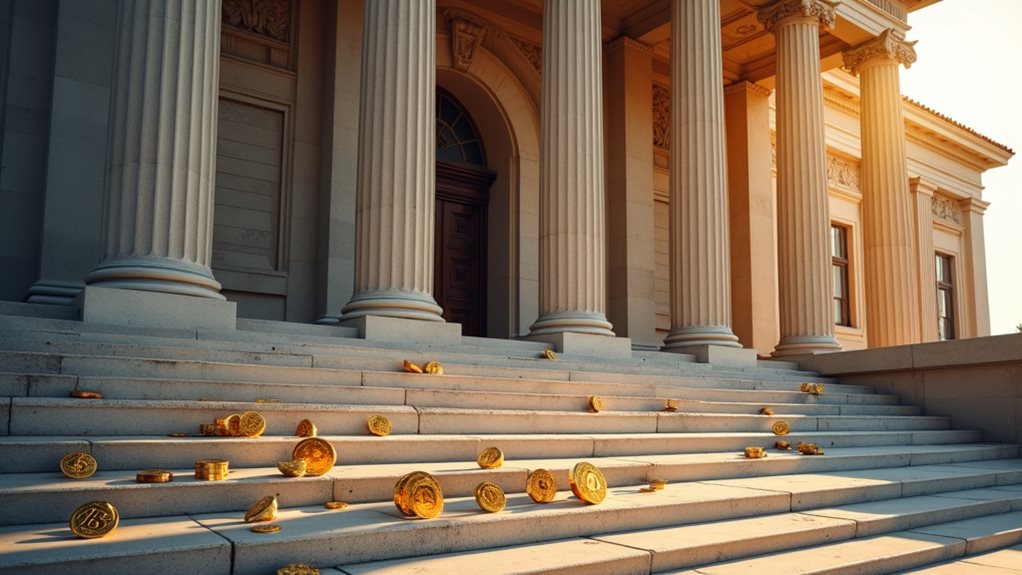North Carolina lawmakers are making waves with bold crypto investment plans. Two identical bills propose allocating 5% of state pension funds to digital assets, including Bitcoin and NFTs. Representative Brenden Jones's House Bill 506 would establish an independent investment authority to manage these risky ventures. The move mirrors other states' growing interest in crypto, despite critics' concerns about volatility. North Carolina's experiment could reshape how government pensions handle digital assets – for better or worse.

Several North Carolina lawmakers are pushing to dive headfirst into the crypto pool, introducing legislation that would let state pension funds invest in Bitcoin and other digital assets. Two identical bills – the Investment Modernization Act and State Investment Modernization Act – are making waves in both the House and Senate, proposing a bold 5% allocation of pension funds into digital currencies.
Talk about a plot twist for traditional pension management. Representative Brenden Jones kicked things off with House Bill 506, followed by its Senate twin. The bills aren't just throwing money at crypto – they're establishing an independent North Carolina Investment Authority to separate the legitimate digital assets from the duds. Because let's face it, not all crypto is created equal. The state's approach emphasizes secure custodial solutions for all digital assets.
North Carolina's dive into crypto isn't just a wild gamble – they're creating safeguards to separate digital gold from crypto fool's gold.
This isn't your grandfather's investment strategy. The legislation opens the door to Bitcoin, stablecoins, and yes, even those trendy NFTs everyone's been buzzing about. Unlike some other states' proposals, North Carolina isn't bothering with market cap requirements. They're keeping it flexible, focusing instead on security and proper risk assessment. The initiative could reshape how public pensions are managed in the digital era. The move could benefit from spot ETFs which directly track Bitcoin's price through secure cold storage.
The state's timing is interesting, joining a nationwide trend of governments dipping their toes into crypto waters. Oklahoma's got similar ideas brewing, and other states are scrambling to jump on the digital asset bandwagon. It's like watching a group of cautious swimmers finally deciding to test the deep end.
Meanwhile, Senate Bill 327 is taking things even further, suggesting a whopping 10% allocation of public funds to Bitcoin. They want to store it in multi-signature cold storage – fancy talk for keeping it extra secure. The catch? They can only access these funds during a severe financial crisis, and even then, they'll need approval.
Sure, critics are wringing their hands about volatility and regulatory uncertainty. But North Carolina's lawmakers seem determined to modernize their investment strategy, viewing Bitcoin as a potential hedge against inflation. Whether this bold move will pay off or leave pension holders biting their nails remains to be seen. Welcome to the brave new world of public fund management.









